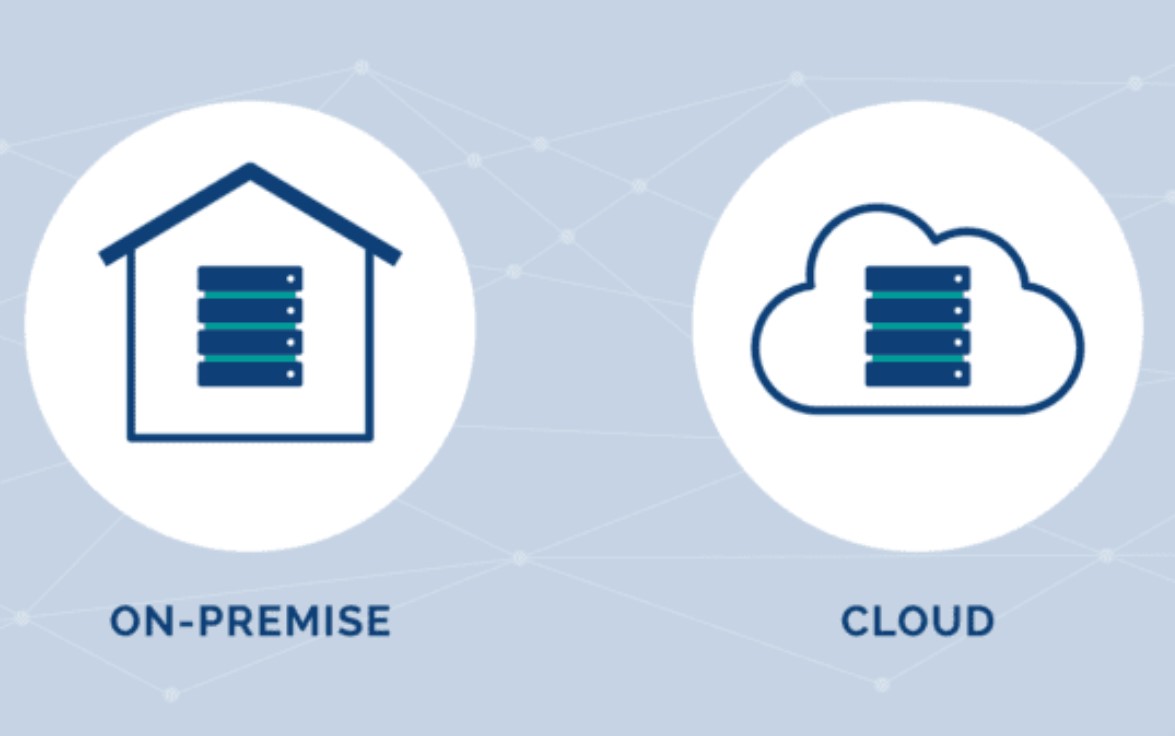
In today’s fast-paced business environment, cloud-based solutions have become essential for small businesses looking to streamline operations, enhance collaboration, and improve scalability. In this article, we’ll explore the top 10 cloud-based solutions for small businesses in 2024, highlighting their benefits, features, and how they can help you achieve your business goals.
What Are Cloud-Based Solutions?

Cloud-based solutions are services and applications that are hosted on remote servers and accessed via the internet. These solutions offer numerous advantages, including reduced costs, improved flexibility, and enhanced security. By leveraging cloud technology, small businesses can operate more efficiently and compete with larger enterprises.
Benefits of Cloud-Based Solutions for Small Businesses

Cloud-based solutions have become essential for small businesses, offering numerous advantages that help streamline operations, enhance collaboration, and drive growth. Here’s a detailed look at the key benefits:
1. Cost-Effectiveness
Cloud-based solutions are typically more cost-effective than traditional on-premises systems. They operate on a subscription-based or pay-as-you-go model, allowing small businesses to avoid large upfront investments in hardware and software.
How It Works:
- Reduced Capital Expenditure: There’s no need to purchase expensive servers, storage devices, or other hardware. This significantly lowers initial costs.
- Operational Expenditure Model: Businesses pay a regular fee based on usage, making budgeting more predictable and manageable.
- No Maintenance Costs: Cloud providers handle all maintenance, updates, and security patches, reducing the need for an in-house IT team and associated costs.
Example:
- A small retail business can use a cloud-based point-of-sale system without the need for expensive hardware, only paying a monthly fee that covers software usage and updates.
2. Scalability and Flexibility
Cloud-based solutions offer unparalleled scalability and flexibility, allowing small businesses to adapt quickly to changing needs and demands.
How It Works:
- Elastic Resources: Cloud resources can be scaled up or down based on demand. This means businesses can easily accommodate growth or seasonal spikes without over-investing in infrastructure.
- No Physical Limitations: Unlike on-premises systems, cloud solutions are not limited by physical hardware. This ensures that businesses can expand their capabilities as needed without delays.
Example:
- An online store can increase its cloud storage capacity during the holiday shopping season to handle increased traffic and data, then scale back down afterward, only paying for what they used.
3. Enhanced Security
Security is a critical concern for small businesses, and cloud providers invest heavily in advanced security measures to protect their clients’ data.
Security Features:
- Encryption: Data is encrypted both in transit and at rest, ensuring it is protected from unauthorized access.
- Access Controls: Advanced access controls and identity management systems allow businesses to control who has access to their data.
- Regular Audits and Compliance: Cloud providers undergo regular security audits and comply with various industry standards and regulations, ensuring robust security protocols.
Example:
- A healthcare clinic can use cloud storage to securely store patient records, benefiting from the provider’s advanced security measures and ensuring compliance with health data regulations.
4. Improved Collaboration
Cloud-based solutions enhance collaboration within small businesses by providing easy access to data and applications from any location.
How It Works:
- File Sharing and Synchronization: Teams can share files and work on them simultaneously, with changes synchronized in real-time.
- Version Control: Cloud storage systems often include version control features, allowing users to track changes and revert to previous versions if needed.
- Accessibility: Employees can access data from any device with an internet connection, facilitating remote work and global collaboration.
Example:
- A marketing agency can use cloud-based project management tools to collaborate on campaigns, with team members accessing and updating project files in real-time, regardless of their location.
5. Disaster Recovery and Business Continuity
Cloud storage solutions come with built-in disaster recovery and business continuity features, ensuring that data is protected and can be quickly restored in the event of an emergency.
How It Works:
- Automatic Backups: Regular, automated backups ensure that data is continually protected without manual intervention.
- Geographic Redundancy: Data is stored in multiple locations, reducing the risk of loss due to localized events such as natural disasters or hardware failures.
- Fast Recovery Times: In the event of a failure, data can be quickly restored, minimizing downtime and maintaining business operations.
Example:
- A financial consultancy firm can ensure business continuity by using a cloud-based disaster recovery solution that automatically backs up client data and allows for quick recovery in case of system failures.
6. Enhanced Data Management and Analytics
Cloud storage platforms often include tools and integrations that enhance data management and analytics capabilities, enabling small businesses to gain deeper insights and make data-driven decisions.
How It Works:
- Advanced Search and Indexing: Quickly locate and retrieve data using powerful search and indexing features.
- Data Lifecycle Management: Automatically manage data retention, archiving, and deletion based on predefined policies.
- Integration with Analytics Tools: Seamlessly integrate with analytics platforms and tools for real-time data analysis and reporting.
Example:
- A small e-commerce business can use cloud-based analytics tools to track customer behavior and sales trends, allowing it to optimize marketing strategies and inventory management.
7. Environmental Sustainability
By using cloud-based solutions, small businesses can contribute to environmental sustainability. Cloud providers operate data centers that are often more energy-efficient and utilize renewable energy sources.
How It Works:
- Energy-Efficient Data Centers: Cloud providers invest in energy-efficient infrastructure and cooling technologies to reduce their carbon footprint.
- Renewable Energy: Many cloud providers are committed to using renewable energy sources to power their data centers.
- Resource Optimization: Cloud storage allows for more efficient use of resources, as businesses only use the storage they need.
Example:
- A small tech company can reduce its environmental impact by migrating to cloud storage, relying on the provider’s sustainable practices to minimize its carbon footprint.
Top 10 Cloud-Based Solutions for Small Businesses

1. Google Workspace
Website: Google Workspace
Details: Google Workspace (formerly G Suite) is a comprehensive suite of productivity and collaboration tools that include Gmail, Google Drive, Docs, Sheets, and more. It integrates seamlessly with other Google services, providing a unified platform for small businesses.
Benefits:
- Real-time collaboration on documents, spreadsheets, and presentations.
- Secure email hosting with custom domain addresses.
- Cloud storage with robust sharing and access controls.
Price: Starting at $6 per user per month.
2. Microsoft 365
Website: Microsoft 365
Details: Microsoft 365 offers a suite of productivity applications such as Word, Excel, PowerPoint, and Teams. It provides cloud storage through OneDrive and enhances collaboration with SharePoint and Teams.
Benefits:
- Access to familiar Microsoft Office applications.
- Integration with Microsoft Teams for communication and collaboration.
- Secure cloud storage with OneDrive.
Price: Starting at $5 per user per month.
3. Dropbox Business
Website: Dropbox Business
Details: Dropbox Business provides cloud storage and file synchronization services designed for collaboration. It offers advanced sharing features and integrates with popular tools like Slack and Zoom.
Benefits:
- Easy file sharing and collaboration.
- Integration with third-party apps.
- Robust security features and administrative controls.
Price: Starting at $15 per user per month.
4. Salesforce
Website: Salesforce
Details: Salesforce is a leading customer relationship management (CRM) platform that helps businesses manage customer interactions, sales, and support. It offers a range of tools for marketing, sales, and customer service.
Benefits:
- Comprehensive CRM functionality.
- Customizable to fit specific business needs.
- Integration with various third-party applications.
Price: Starting at $25 per user per month.
5. QuickBooks Online
Website: QuickBooks Online
Details: QuickBooks Online is a cloud-based accounting solution designed for small businesses. It offers features for invoicing, expense tracking, payroll, and financial reporting.
Benefits:
- Easy-to-use interface with powerful accounting features.
- Automated invoicing and expense tracking.
- Integration with bank accounts and other financial services.
Price: Starting at $25 per month.
6. Slack
Website: Slack
Details: Slack is a cloud-based messaging platform that facilitates team communication and collaboration. It offers channels for different projects, direct messaging, and integrations with numerous productivity tools.
Benefits:
- Real-time messaging and collaboration.
- Integration with various third-party apps.
- Customizable channels for organized communication.
Price: Starting at $6.67 per user per month.
7. Asana
Website: Asana
Details: Asana is a cloud-based project management tool that helps teams organize, track, and manage their work. It offers features for task management, project tracking, and collaboration.
Benefits:
- Visual project management with boards and timelines.
- Task assignments and deadlines to keep projects on track.
- Integration with other productivity tools.
Price: Free for basic plan; Premium plans start at $10.99 per user per month.
8. Trello
Website: Trello
Details: Trello is a visual collaboration tool that uses boards, lists, and cards to help teams manage projects and tasks. It is flexible and easy to use, making it ideal for small businesses.
Benefits:
- Simple and intuitive interface.
- Customizable boards for different projects.
- Integration with other apps and services.
Price: Free for basic plan; Business Class plans start at $12.50 per user per month.
9. Zoom
Website: Zoom
Details: Zoom is a cloud-based video conferencing solution that offers features for online meetings, webinars, and collaboration. It provides high-quality video and audio, making it a popular choice for remote communication.
Benefits:
- High-quality video and audio conferencing.
- Screen sharing and collaboration tools.
- Integration with other productivity tools.
Price: Free for basic plan; Pro plans start at $14.99 per host per month.
10. Shopify
Website: Shopify
Details: Shopify is a cloud-based e-commerce platform that allows small businesses to create and manage online stores. It offers a range of tools for product management, payment processing, and order fulfillment.
Benefits:
- Easy-to-use e-commerce platform.
- Built-in tools for payment processing and shipping.
- Customizable templates and design options.
Price: Starting at $29 per month.
Comparison Table
| Feature | Google Workspace | Microsoft 365 | Dropbox Business | Salesforce | QuickBooks Online | Slack | Asana | Trello | Zoom | Shopify |
|---|---|---|---|---|---|---|---|---|---|---|
| Scalability | Highly scalable | Highly scalable | Scalable | Highly scalable | Scalable | Scalable | Scalable | Scalable | Scalable | Scalable |
| Cost | Starting at $6/user/month | Starting at $5/user/month | Starting at $15/user/month | Starting at $25/user/month | Starting at $25/month | Starting at $6.67/user/month | Free to $10.99/user/month | Free to $12.50/user/month | Free to $14.99/host/month | Starting at $29/month |
| Security | Robust security features | Strong security | Advanced security | Robust security features | Strong security | Secure | Secure | Secure | Secure | Secure |
| Integration | Google services | Microsoft services | Third-party apps | Various applications | Financial services | Various productivity tools | Productivity tools | Various apps and services | Productivity tools | E-commerce tools |
| Use Case | Productivity and collaboration | Productivity and collaboration | File sharing and collaboration | CRM and customer management | Accounting and financial management | Team communication | Project management | Project management | Video conferencing | E-commerce management |
Detailed Use Cases
Google Workspace
Problem Solved:
- Enhancing productivity and collaboration across teams.
- Providing a unified platform for communication and file management.
Why People Need It:
- Google Workspace offers a comprehensive suite of tools that integrate seamlessly, making it easier for teams to collaborate and communicate effectively.
How to Buy:
- Visit the Google Workspace website, choose a plan, and sign up for an account.
- Pricing starts at $6 per user per month.
Microsoft 365
Problem Solved:
- Offering familiar productivity tools with cloud storage and collaboration features.
- Providing a secure platform for business communication and file sharing.
Why People Need It:
- Microsoft 365 combines the power of Office applications with cloud storage and collaboration tools, making it ideal for businesses that rely on Microsoft products.
How to Buy:
- Go to the Microsoft 365 website, select a plan, and create an account.
- Pricing starts at $5 per user per month.
Dropbox Business
Problem Solved:
- Facilitating secure file sharing and collaboration among team members.
- Providing robust administrative controls and security features.
Why People Need It:
- Dropbox Business offers advanced sharing features and integrates with popular tools, making it easy to collaborate and manage files securely.
How to Buy:
- Access the Dropbox Business website, choose a plan, and sign up.
- Pricing starts at $15 per user per month.
Salesforce
Problem Solved:
- Managing customer relationships and interactions effectively.
- Automating sales, marketing, and customer service processes.
Why People Need It:
- Salesforce provides a comprehensive CRM platform that can be customized to fit specific business needs, enhancing customer management and operational efficiency.
How to Buy:
- Visit the Salesforce website, explore the plans, and sign up for a trial or subscription.
- Pricing starts at $25 per user per month.
QuickBooks Online
Problem Solved:
- Simplifying accounting and financial management for small businesses.
- Automating invoicing, expense tracking, and payroll processing.
Why People Need It:
- QuickBooks Online offers a user-friendly interface with powerful accounting features, helping businesses manage their finances efficiently.
How to Buy:
- Go to the QuickBooks Online website, select a plan, and create an account.
- Pricing starts at $25 per month.
FAQs
- What are the main benefits of cloud-based solutions for small businesses?
- Scalability, cost savings, enhanced security, improved collaboration, and disaster recovery.
- How do cloud-based solutions improve collaboration?
- They enable teams to access and share files in real-time, facilitating better communication and teamwork.
- Are cloud-based solutions secure?
- Yes, cloud providers invest heavily in security measures, including encryption, access controls, and regular audits.
- Can small businesses afford cloud-based solutions?
- Yes, many cloud-based solutions offer affordable pricing models tailored to the needs of small businesses.
- How do I choose the best cloud-based solution for my business?
- Consider factors such as your business needs, budget, scalability, integration with existing tools, and security requirements.
Cloud-based solutions offer numerous advantages for small businesses, from enhancing productivity and collaboration to improving security and scalability. By exploring the top 10 cloud-based solutions for 2024, businesses can find the right tools to support their growth and operational efficiency.
Understanding these benefits and evaluating how they align with your business needs can help you make an informed decision. Whether you’re looking for productivity tools, CRM systems, or project management software, cloud-based solutions provide the flexibility and power needed to succeed in today’s competitive market.





